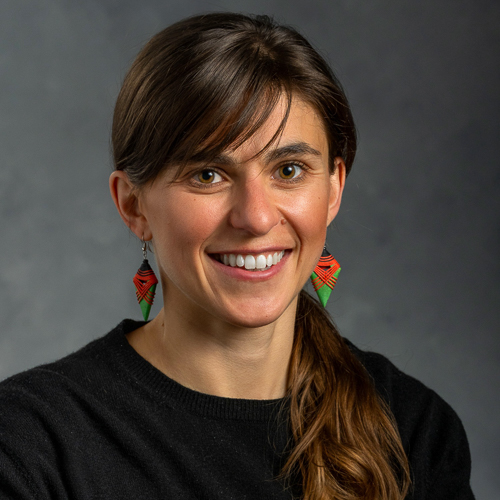Lenski Elected to the American Philosophical Society
Evolutionary biologist Richard Lenski was inducted into the American Philosophical Society — the oldest "learned society" in the United States — on Nov. 9, 2018 in Philadelphia, Pennsylvania.
The society was founded by Benjamin Franklin in 1743 for the promotion of useful knowledge in the sciences and humanities through excellence in scholarly research, professional meetings, publications, library resources and community outreach, with 2018 marking the society’s 275th anniversary. Lenski, along with 34 others, was elected to the society in April 2018.
"It’s amazing to be a part of the American Philosophical Society and to think of its impressive history, starting with Ben Franklin, Thomas Jefferson and George Washington,” Richard said. “My own first meeting was terrific, with talks by experts that spanned the spectrum from the humanities and social justice to engineering and science."
Richard, the John A. Hannah Distinguished Professor of Microbial Ecology at MSU, is renowned for his experimental studies of the evolutionary process including his Long-Term Evolution Experiment with E. coli bacteria. He is also a founding member of the BEACON Center for the Study of Evolution in Action, which brings together biologists, computer scientists and engineers to illuminate and harness the power of evolution.
Richard takes an experimental approach to evolution research: watching the process in action. In an on-going experiment that he started in 1988 — known as the Long-Term Evolution Experiment or LTEE — Richard Lenski and his team have been monitoring and analyzing 12 populations of E. coli bacteria as they evolve in a controlled environment more than 70,000 generations. His work has provided fundamental insights into the process of microbial adaptation, the dynamics of genome evolution and the origin of new functions.
“Richard is eminently qualified to take his place in this society along with great thought leaders, from Franklin and Jefferson to contemporary winners of Nobel prizes,” said Erik Goodman, BEACON Center director. "He has made enormous contributions to our understanding of evolution through his Long-Term Evolution Experiment.
“Induction into the American Philosophical Society will give Richard additional opportunities to interact with some of the world's leading thinkers from all fields, and he will bring to that distinguished group his unrivaled understanding of evolutionary processes going on in the world around us,” Goodman added. “We at Michigan State, and particularly in the BEACON Center, are proud of his many accomplishments and grateful for his many contributions to our understanding of evolutionary processes.”
Richard holds joint appointments in the Department of Microbiology and Molecular Genetics and in the Department of Integative Biology, both in the College of Natural Science, and in the Department of Plant, Soil and Microbial Ecology in the College of Agriculture and Natural Resources. He is one of seven scholars honored in the APS biological sciences category this year and the second faculty member at MSU honored by induction into the APS. The first MSU faculty member elected to the APS was Jack Liu, who was inducted in 2015.
In addition to this honor, Richard has received fellowships from the Guggenheim and MacArthur Foundations, holds an honorary degree from Wageningen University and is an elected member of the American Academy of Arts and Sciences, the European Molecular Biology Organization and the U.S. National Academy of Sciences.



